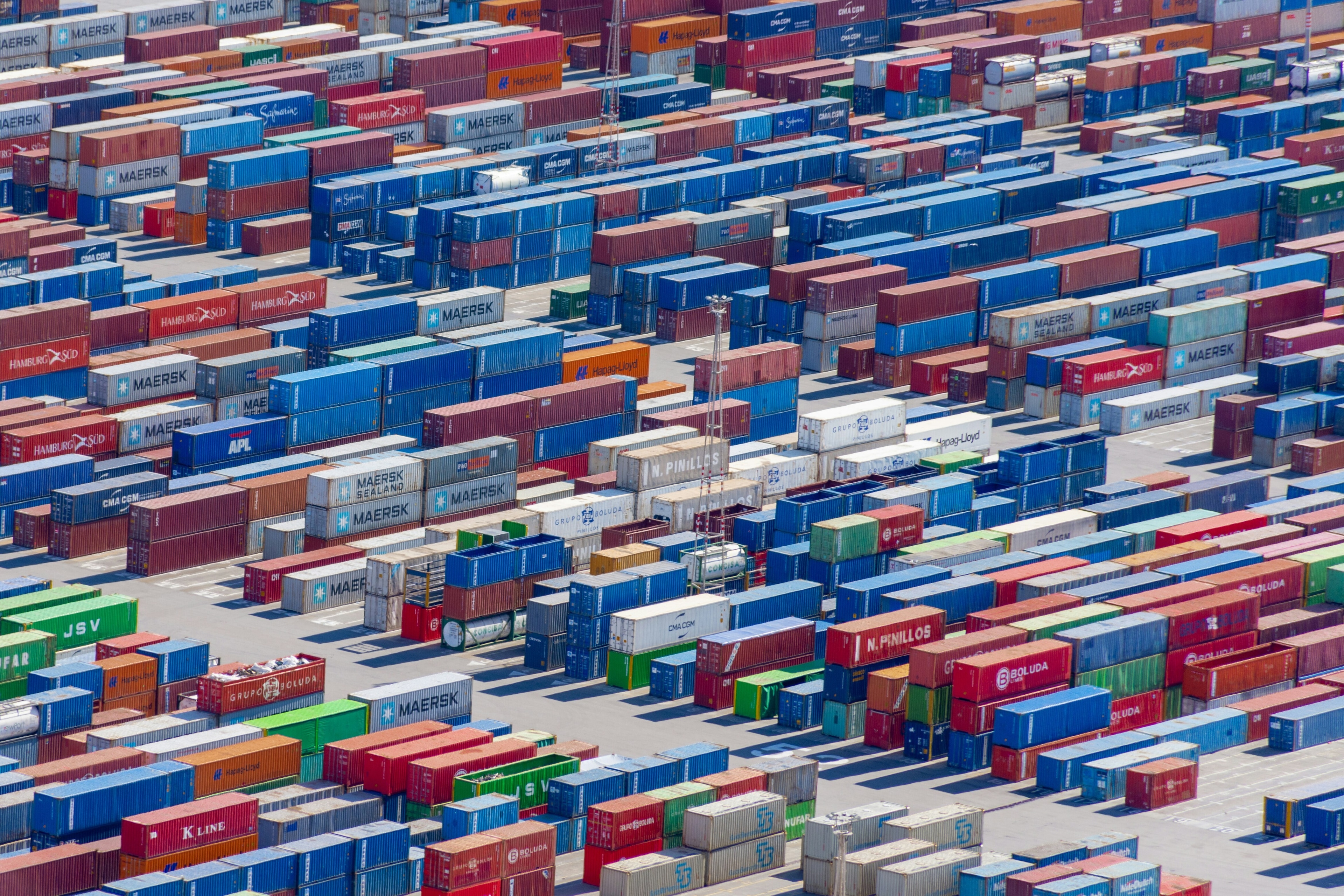5 principles of public-private data collaboration to improve resilience of the maritime supply chain

Data collaboration is key to building resilient maritime supply chains. Image: Unsplash/Kurt Cotoaga
Pascal Ollivier
Member of the Steering Committe of IAPH Data Collaboration Committee, International Association of Ports and Harbors (IAPH)Gadi Benmoshe
Vice-Chair of the Data Collaboration Committee, International Association of Ports and Harbors (IAPH)- COVID-19 severely disrupted economic activity across the world, highlighting the importance of improving the resilience of maritime supply chains.
- Engaging public and private stakeholders in creating a data collaboration policy framework is a must have to build trust and good practices.
- Here we outline five principles for creating a holistic approach to data collaboration, which will help make supply chains more resilient.
COVID-19 brought major supply chain disruptions to economic activity across the world, precipitating an unprecedented crisis. One of the key lessons learned early in the post-pandemic era is the need to ensure business continuity of the critical supply lines and improve resilience of the maritime gateways, as well as the associated logistical chains.
The time has come to call for a change of system to get to at least a minimum level of predictability that could be achieved through an orchestration and optimization of inter-organizational business processes and data collaboration between maritime supply chain public and private stakeholders. Just in time arrival of ships at berth and trucks at gates can only be achieved by data collaboration.
However, seaports are a complex ecosystem in the maritime supply chain and we need to address the perception of public sector about the private sector, and vice versa, when it comes to trust and collaboration.
Engaging the public and private stakeholders in creating a data collaboration policy framework is a must have to build trust and good practices in a sustainable way, as the world’s attention is now focused on supply chain.
Beneficial cargo owners (BCOs) and shippers have started to open the port’s black box for getting data insights from the maritime supply chain. During the World Port Conference 2022, Lori Fellmer, former Second Vice-Chairman of the US National Industrial Transportation League and Vice President Logistics, Bass Tech called on port authorities to make changes in port operations to enable predictability of cargo shipments.
Public-private data collaboration was presented by World Economic Forum and McKinsey just before the COVID-19 pandemic as the new paradigm of data management between the public and private sector for the common good.
Data collaboration provides insights for decision making and is so critical in the maritime supply chain that the board of the International Association of Ports and Harbors (IAPH) decided to create a strategic data collaboration committee.
Holistic approach to data collaboration needed
Breaking the ice between siloed public and private sectors by removing barriers such as lack of trust, technology, and operational and governance issues could be achieved by creating, in the first instance, a common understanding of data collaboration by balancing the value and risk dimensions of data collaboration and strengthening trust, in the second instance.
The benefits of data collaboration range from a new creative thinking, enabled decision-making, predictive forecasting, business process optimization and orchestration, operational efficiency and innovation, while the risks of data collaboration ranges from commercial, regulatory and cybersecurity risks to privacy risks.
Public-private collaboration is the governing principle of digital port infrastructure platforms such as maritime single window, port community system and crucial processes such as port call optimization.
Ports play a vital role in supply chain resilience, as they can provide the continuity of operations and connectedness throughout the community in order to control the flow of goods. Public-private data collaboration is key in creating seamless, secure and sustainable flow of goods through our ports. At Portbase, we believe this can only be achieved by creating trust among the stakeholders combined with strong and reliable data governance and orchestration
”The holistic approach is based on five principles for strengthening trust and good practices as critical enablers of public-private data collaboration. These are:

1. Stakeholder engagement: Bringing public and private stakeholders around the table is a mandatory requirement. To that end, defining a shared value proposition and securing a long-term commitment by all parties can be achieved by establishing an institutional framework such as a national port community council steering committee on data collaboration. Such a framework will ensure commitment and resource availability, to identify competing public stakeholders, to envision trade stakeholder incentives and to commit to measurable outcomes.
2. Data governance: Establishing a legal framework for data collaboration is needed to foster cybersecurity, privacy and ethics in the use of data, while building a secure, resilient governance structure and technology infrastructure. Data governance is a requirement to address complex and legal issues and clear standard operating processes between governmental agencies. Meanwhile, a data collaboration agreement will provide data owners with the possibility to decide which data elements are shared into inter-organizational business process to maximize collaboration at the national port ecosystem level, while ensuring conformity to regulatory and security requirements, as described in the World Bank and IAPH PCS Global study, which is to be published at IAPH World Ports Conference in November.
3. Data orchestration: Securing quality, integrity and real-time availability of trusted data; enabling business rules automation; focusing on key performance indicators and artificial intelligence data driven risk management systems; establishing ongoing reviews to assess and validate new approaches; and implementing governance processes, are vital for delivering the right data to the right user. Interoperability is the pillar of data orchestration, as described in IMO FAL.14(46) resolution on maritime single window.
4. Change management: Enable change management by implementing an institutional framework, empowering coordinated border management, and building the workforce and sustainable capacity, as introduced as “human capital “ in the World Bank and IAPH report on accelerating digitalization and described also at port community systems case studies in Africa, Europe and Latin America from the World Bank and IAPH.
5. Economic sustainability and scalability: Achieve sustainability and scalability by assessing a variety of national, bilateral and multilateral long-term project financing and technical assistance for data collaboration initiatives, such as project financing from World Bank, Inter-American Development Bank, Africa Development Bank and Asia Development bank. Capacity to move from a local port initiative to nationwide seaport systems, regional and global data collaboration platforms such as the new green and digital corridors is a must have.
Let’s stop talking about 'data sharing' – it makes people think they are forced to share the data itself. Instead, let’s talk about “data collaboration
”This holistic approach provides a framework for a powerful public-private data collaboration, enabling the next level of strategic decision-making – one based on trust and sustainable good practices at ports to improve transparency and to strengthen the resilience of the maritime supply chain.
Don't miss any update on this topic
Create a free account and access your personalized content collection with our latest publications and analyses.
License and Republishing
World Economic Forum articles may be republished in accordance with the Creative Commons Attribution-NonCommercial-NoDerivatives 4.0 International Public License, and in accordance with our Terms of Use.
The views expressed in this article are those of the author alone and not the World Economic Forum.
Stay up to date:
Logistics
Forum Stories newsletter
Bringing you weekly curated insights and analysis on the global issues that matter.
More on Supply Chains and TransportationSee all
Isabel Cane and Rob Strayer
November 13, 2025






